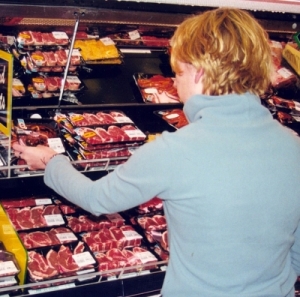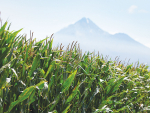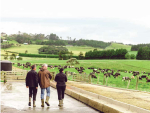The UN's Food and Agriculture Organisation Food Price Index dropped for the third consecutive month in December 2012, edging down 1.1%.
The decline in December, when the index averaged 209 points, was led by drops in the international prices of major cereals and oils and fats. The index's previous low in 2012 was in June, at 200 points.
For 2012 as a whole, the index averaged 212, that is 7% less than in 2011, with the sharpest falls year-on-year registered by sugar (17.1%), dairy products (14.5%) and oils (10.7%. Price declines were much more modest for cereals (2.4%) and meat (1.1%).
"The result marks a reversal from the situation last July, when sharply rising prices prompted fears of a new food crisis," said Jomo Sundaram, assistant director-general in charge of FAO's Economic and Social Development Department.
"But international coordination, including through the Agricultural Market Information System (AMIS), as well as flagging demand in a stagnant international economy, helped ensure the price spike was short-lived and calmed markets so that 2012 prices ended up below the previous year's levels."
The FAO Dairy Price Index averaged 197 points in December, 0.9%, or two points, higher than in November. In the last quarter of 2012, dairy prices stabilised following a rise from mid-year lows.
The average value of the index during 2012 was 189, down sharply from 221 in 2011. Overall, the dairy market remains well-balanced, but is increasingly susceptible to supply changes related to pasture conditions, and feed availability and affordability, the FAO says.
The FAO Meat Price Index averaged 176 points in December, down marginally from November. Prices of all meat categories remained close to their November level, except pig meat, which fell by 2%, or 3 points. The index averaged 175 points over 2012, second only to the 177 points recorded for 2011.
The FAO Cereal Price Index averaged 250 points in December, down 2.3%, or 6 points, from November. In 2012 as a whole, the index averaged 241, or 2.4% below 2011.
After surging between July and September 2012 due to production uncertainties and tightening supplies, cereal export prices dropped because of weaker demand for feed and industrial uses.
In December, maize prices fell sharply as large export supplies in South America relieved market pressure. Rice prices also dipped in December on expectation of good harvests, but wheat values changed little as trade remained subdued.
Oils and fats continue to decline
The FAO Oils/Fats Price Index averaged 197 points in December, down 1.9%, or 4 points, from November, the fourth consecutive monthly fall and the lowest level since September 2010. The main reason was the continued buildup of large global inventories of palm oil. For 2012, the index averaged 225 points, as against 252 in 2011.
The FAO Sugar Price Index averaged 274 points in December, down marginally from November, and the lowest value since August 2010. The Index averaged 306 over 2012, down 17.1% from the previous year. Expectations of a third consecutive increase in global production and large export availabilities in the 2012/13 marketing season, notably in Brazil, kept international prices down for much of the second half of 2012.



















